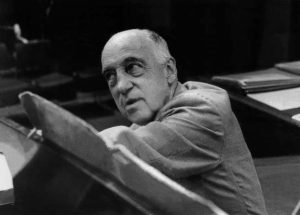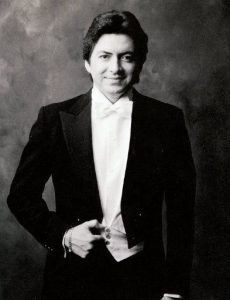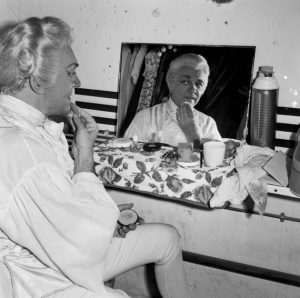Podcast: Play in new window | Download (Duration: 1:37:37 — 83.7MB) | Embed
Subscribe: Spotify | TuneIn | RSS | More
Continuing our exploration of queer pride in classical music, I bring you the great baryton-martin Pierre Bernac (1899 – 1979), known first and foremost as a creator of some of the most exquisite mélodies of his friend and musical partner Francis Poulenc. Later Bernac became renowned as the exemplar of style and taste in the interpretation of French art song. In this episode, however, I wanted to explore his contribution as a singer of the music of composers other than Poulenc. I had already found some great orchestral song cycles by André Jolivet and Louis Beydts, as well as a sublimely anachronistic recording of a Bach cantata, but just yesterday I came upon a series of rare recordings that Bernac made in 1935 for the Ultraphone label. These include songs by Debussy and Hahn accompanied by pianists Jean Doyen and Boris Golschmann (who was the brother of the conductor Vladimir Golschmann, and whose tragic story I relate), as well as an earlier (and even more exquisite) recording of Chausson’s “Le colibri.” But perhaps the crown jewels among these early records were two duets with the exquisite French-Algerian soprano Leïla Ben Sedira which won the Grand Prix du Disque in 1936. I have folded these deeply satisfying early recordings into the setlist that I had already partially assembled for a very special episode that I hope that you will enjoy!
Countermelody is a podcast devoted to the glory and the power of the human voice raised in song. Singer and vocal aficionado Daniel Gundlach explores great singers of the past and present focusing in particular on those who are less well-remembered today than they should be. Daniel’s lifetime in music as a professional countertenor, pianist, vocal coach, voice teacher, and journalist yields an exciting array of anecdotes, impressions, and “inside stories.” At Countermelody’s core is the celebration of great singers of all stripes, their instruments, and the connection they make to the words they sing. By clicking on the following link (https://linktr.ee/CountermelodyPodcast) you can find the dedicated Countermelody website which contains additional content including artist photos and episode setlists. The link will also take you to Countermelody’s Patreon page, where you can pledge your monthly or yearly support at whatever level you can afford.



